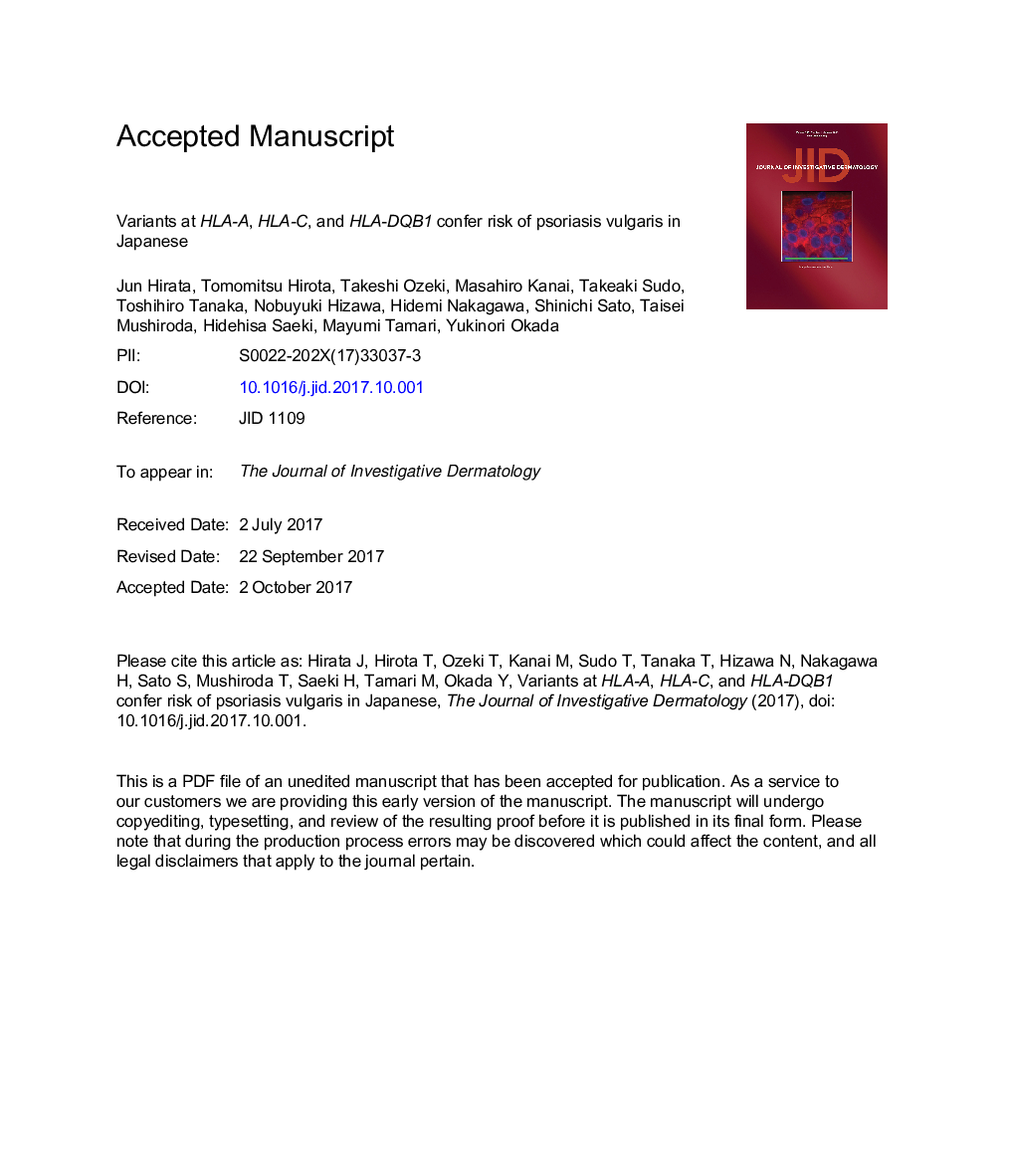| Article ID | Journal | Published Year | Pages | File Type |
|---|---|---|---|---|
| 8716101 | Journal of Investigative Dermatology | 2018 | 29 Pages |
Abstract
Psoriasis vulgaris (PsV) is an autoimmune disease of skin and joints with heterogeneity in epidemiologic and genetic landscapes of global populations. We conducted an initial genome-wide association study and a replication study of PsV in the Japanese population (606 PsV cases and 2,052 controls). We identified significant associations of the single nucleotide polymorphisms with PsV risk at TNFAIP3-interacting protein 1and the major histocompatibility complex region (P = 3.7 à 10â10 and 6.6 à 10â15, respectively). By updating the HLA imputation reference panel of Japanese (n = 908) to expand HLA gene coverage, we fine-mapped the HLA variants associated with PsV risk. Although we confirmed the PsV risk of HLA-C*06:02 (odds ratio = 6.36, P = 0.0015), its impact was relatively small compared with those in other populations due to rare allele frequency in Japanese (0.4% in controls). Alternatively, HLA-A*02:07, which corresponds to the cysteine residue at HLA-A amino acid position 99 (HLA-A Cys99), demonstrated the most significant association with PsV (odds ratio = 4.61, P = 1.2 à 10-10). In addition to HLA-A*02:07 and HLA-C*06:02, stepwise conditional analysis identified an independent PsV risk of HLA-DQβ1 Asp57 (odds ratio = 2.19, P = 1.9 à 10-6). Our PsV genome-wide association study in Japanese highlighted the genetic architecture of PsV, including the identification of HLA risk variants.
Keywords
Related Topics
Health Sciences
Medicine and Dentistry
Dermatology
Authors
Jun Hirata, Tomomitsu Hirota, Takeshi Ozeki, Masahiro Kanai, Takeaki Sudo, Toshihiro Tanaka, Nobuyuki Hizawa, Hidemi Nakagawa, Shinichi Sato, Taisei Mushiroda, Hidehisa Saeki, Mayumi Tamari, Yukinori Okada,
